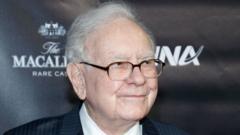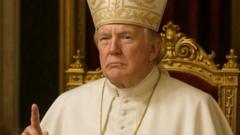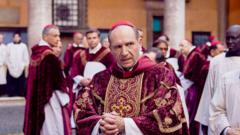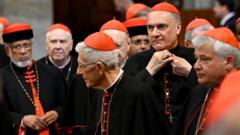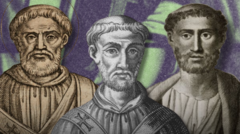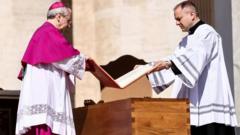The upcoming conclave presents an opportunity for the Catholic Church to re-evaluate its direction, with tensions between progressive and conservative factions highlighting the broader ideological battles within the church.
The Future Direction of the Catholic Church: A Conclave of Choices

The Future Direction of the Catholic Church: A Conclave of Choices
As cardinals prepare for the conclave to elect a new pope, key ideological divides could shape the Church's future.
As the world watches, the Roman Catholic cardinals are set to convene to elect a new pope, following the passing of Pope Francis. This moment in Vatican history comes with the weight of significant ideological divisions among the cardinals, mirroring the political polarities seen globally. The struggle for control of the Church is set against the backdrop of differing visions for its future.
Traditionally perceived as a progressive advocate for inclusion, Pope Francis’s approach—especially regarding issues like migration and poverty—has drawn both admiration and criticism. Cardinals within the Church demonstrate a range of beliefs that do not fit neatly into a left-right dichotomy. For many of them, the crux of the issue lies in maintaining the Church's fundamental tenets while addressing modern societal challenges.
Anna Rowlands, a political theologian at Durham University, highlights that the next pope's election will act as a reflection of the Church's stance on inclusivity and dialogue. She warns against the danger of choosing a more combative ideological stance, suggesting that this could inhibit necessary discussions.
At the heart of the conclave is a profound philosophical question: who gets to influence the future of the Catholic Church? The cardinals must navigate this complex terrain, weighing the need for both tradition and reform while ensuring that the voices of their congregations are heard in this pivotal decision-making process. The outcome of the conclave will undoubtedly impact the Church's trajectory in an increasingly divided world.
Traditionally perceived as a progressive advocate for inclusion, Pope Francis’s approach—especially regarding issues like migration and poverty—has drawn both admiration and criticism. Cardinals within the Church demonstrate a range of beliefs that do not fit neatly into a left-right dichotomy. For many of them, the crux of the issue lies in maintaining the Church's fundamental tenets while addressing modern societal challenges.
Anna Rowlands, a political theologian at Durham University, highlights that the next pope's election will act as a reflection of the Church's stance on inclusivity and dialogue. She warns against the danger of choosing a more combative ideological stance, suggesting that this could inhibit necessary discussions.
At the heart of the conclave is a profound philosophical question: who gets to influence the future of the Catholic Church? The cardinals must navigate this complex terrain, weighing the need for both tradition and reform while ensuring that the voices of their congregations are heard in this pivotal decision-making process. The outcome of the conclave will undoubtedly impact the Church's trajectory in an increasingly divided world.




